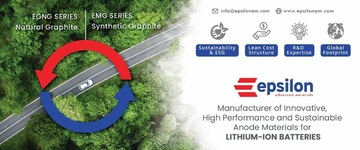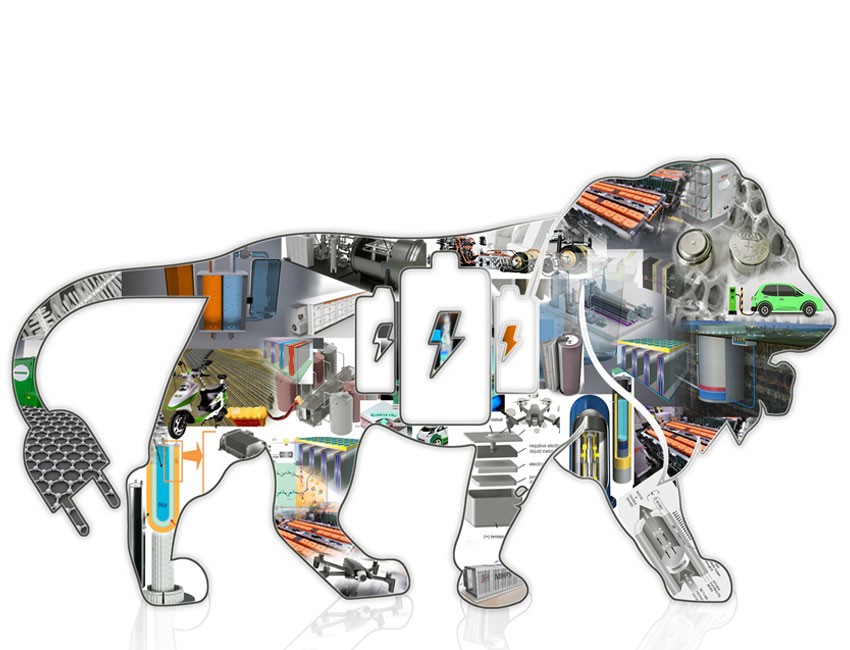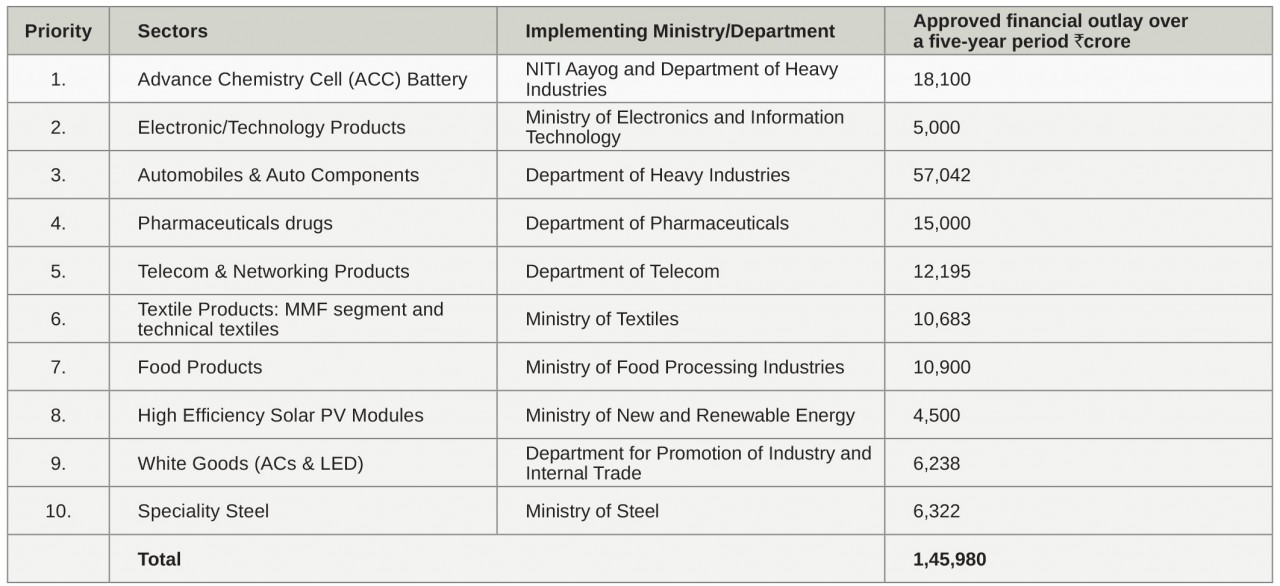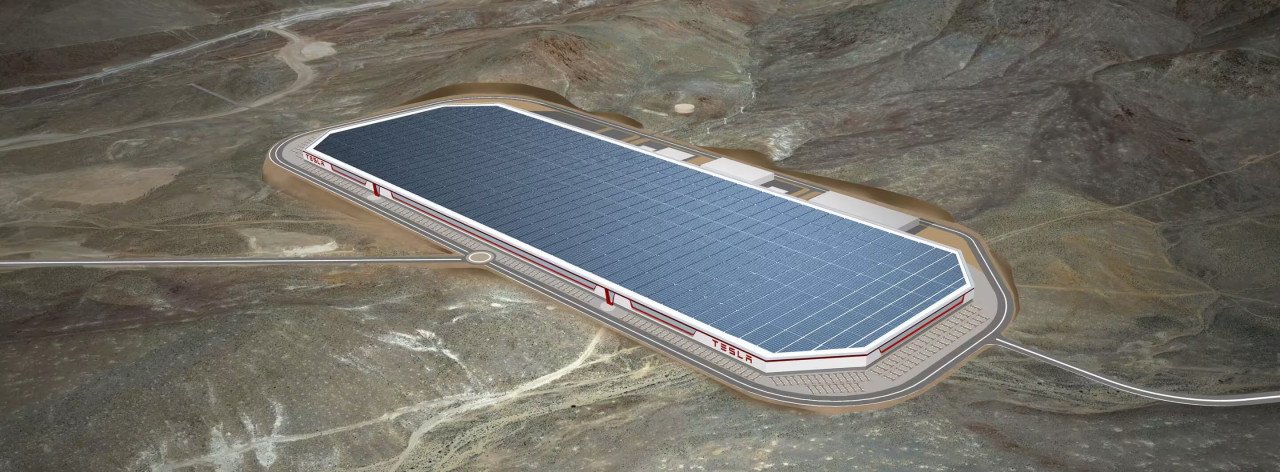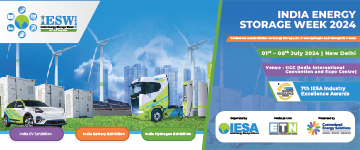ACC Battery: Setting stage for the biggest economic opportunity yet
The Union Cabinet in November approved production-linked incentives in '10 key sectors' including advanced chemistry cell (ACC) battery. With the implementation finally gathering pace, now is the time for the government to kickstart measures that will help mobilize initial investment in this segment.
The outbreak of COVID-19 has impacted nations in an enormous way. The energy materials and renewable generation and conversion market, which includes battery-powered EVs, grid storage, and personal electronic devices, has been no exception. In a short span, the pandemic caused massive interruptions in manufacturing capabilities, which has made companies realize the importance of having a more diverse supply chain and governments realize the significance of indigenous manufacturing, considering the risk of global supply chain disruptions.
When the whole industry stressed on the need for a stable, clear policy regime to boost domestic manufacturing, to tap opportunities raised during this period, the Union Cabinet in November approved production linked incentive (PLI) in 10 key sectors including ACC battery, under the Atmanirbhar Bharat vision. ACC battery has been approved a financial outlay of ₹18,100 crore. Automobiles and auto components have been approved ₹57,042 crore.
The PLI scheme across these specific sectors is aimed at making Indian manufacturers globally competitive, attracting investment in the areas of core competency, and developing cutting-edge technology. Additionally, the scheme is expected to ensure efficiencies, create economies of scale, enhance exports, and make India an integral part of the global supply chain.
Production-Linked Incentive
The PLI scheme announced recently by the government under the Atmanirbhar Bharat Abhiyan is an important initiative towards achieving the ambitious goal of a $5-trillion economy. At a recent event, Prime Minister Narendra Modi said, "We [India] are showing to the world that sound environmental policies can be sound economic policies." In line with PM's vision, India has witnessed phenomenal progress in the last few years towards shaping of policy framework for advanced technologies, especially like storage, EV, etc. Starting from March 2020, the Government of India (GoI) has announced a scheme that aims to give companies incentives on incremental sales from products manufactured in domestic units to reduce India's dependence on China.
Sectors under the PLI scheme
The Prime Minister's clarion call for self-reliance envisages policies for the promotion of an efficient, equitable and resilient manufacturing sector in the country. Growth in production and exports of industrial goods will greatly expose the Indian industry to foreign competition and ideas, which will help in improving its capabilities to innovate further. Promotion of the manufacturing sector and creation of a conducive manufacturing ecosystem will not only enable integration with global supply chains but also establish backward linkages with the MSME sector in the country. It will lead to overall growth in the economy and create huge employment opportunities. The PLI scheme was first announced in March 2020, starting with bulk drugs and for medical devices. Apart from pharma, the scheme was notified for large-scale electronics manufacturing on April 1, 2020, extending an incentive of 4 - 6 percent on incremental sales (over base year) of goods under target segments that are manufactured in India to eligible companies, for a period of five years subsequent to the base year (FY2019-20). In August 2020, the scheme was extended to cover mobile phones and electronic components manufacturing.Therefore, before the 10 additional key sectors announcement was made in November, total financial outlay of ₹51,311 crore was allotted by GoI towards this scheme.
Advance chemistry cell (ACC) battery
In November this year, Union Cabinet approved the PLI scheme for 10 key sectors including advance chemistry cell battery, electronics, automobile and auto components, pharmaceuticals, telecom and networking products, textiles, food products, solar modules, white goods and specialty steel. These sectors have received a total financial outlay of ₹1,45,980 crore over a period of five years.
Scheme implementation
NITI Aayog and Department of Heavy Industries (DHI) will be the implementing agencies for this scheme. ACC battery manufacturing represents one of the largest economic opportunities of the twenty-first century for several global growth sectors, such as consumer electronics, EVs, and renewable energy. The scheme will incentivize large domestic and international players in establishing a competitive ACC battery set-up in the country.
The PLI scheme will be implemented by the concerned ministries/departments and will be within the overall financial limits prescribed. The final proposals of PLI for individual sectors will be appraised by the Expenditure Finance Committee (EFC) and approved by the Cabinet. Savings, if any, from one PLI scheme of an approved sector can be utilized to fund that of another approved sector by the Empowered Group of Secretary.
Subsequent to the Cabinet decision, NITI Aayog invited suggestions on Model Bid Documents
on National Programme on Advance Chemistry Cell (ACC) Battery Storage to support 50 GWh capacity to extend incentives and invite domestic and global companies through a transparent competitive bidding mechanism to set-up mega-manufacturing plants in India. This document proposes program document between GoI and beneficiary firm/manufacturer and tripartite agreement between Centre, State and beneficiary firm/manufacturer to facilitate clearances/land availability to the developer from State.
As per the understanding, this bid document is not limited to disbursement of total subsidy sanctioned of the State; this can be amended as per the requirement and demand growth, which makes PLI scheme exceptional and encouraging towards ACC battery manufacturing. to extend incentives and invite domestic and global companies through a transparent competitive bidding mechanism to set-up mega-manufacturing plants.
This umbrella-level initiative proposes various fiscal incentives through a single-window mechanism, to make domestic ACC manufacturing industry, globally competitive. In addition, the program also proposes a composite framework for imposition of suitable basic custom duty with the intent to promote phased manufacturing of ACCs and its components in India and makes recommendations for promoting the overall market demand for ACCs in India.
Global outlook and industry readiness
Prime Minister Modi announced the creation of the National Energy Storage Mission at the inaugural meeting of International Solar Alliance in October 2018, and subsequently, the 'National Mission for Transformative Mobility & Battery Storage' was announced in March 2019.Since then, the industry is eagerly waiting for a kick-start of various demand-side initiatives that have been considered in the mission. FAME-II scheme initiated by the DHI has also put forward the importance of indigenous value capture and key requirement for investors/developers to set up large (GW) scale manufacturing units.
Globally, manufacturers are capitalizing on these new generation technologies on a commercial scale to cater to the projected boom in battery demand through 2030. Many countries including the US, Korea as well as countries in the European Union have also focused their vision on capturing market for advanced energy storage and EV technologies. These countries have already started implementing policies that have led to commitments from various companies to set up over 100 GWh of annual production capacity in the past one year, which would come online in the next 2-3 years.
With the government's robust policy plans and encouraging schemes to boost the overall economic growth and promote 'Make in India', many potential investors globally are showing interest in investing in India.
Apart from the Centre, multiple State governments in India are ready to jump on the bandwagon and are offering capital subsidies to match those of the Central government. Additionally, they are willing to deliver the infrastructural need for such gigafactories.

